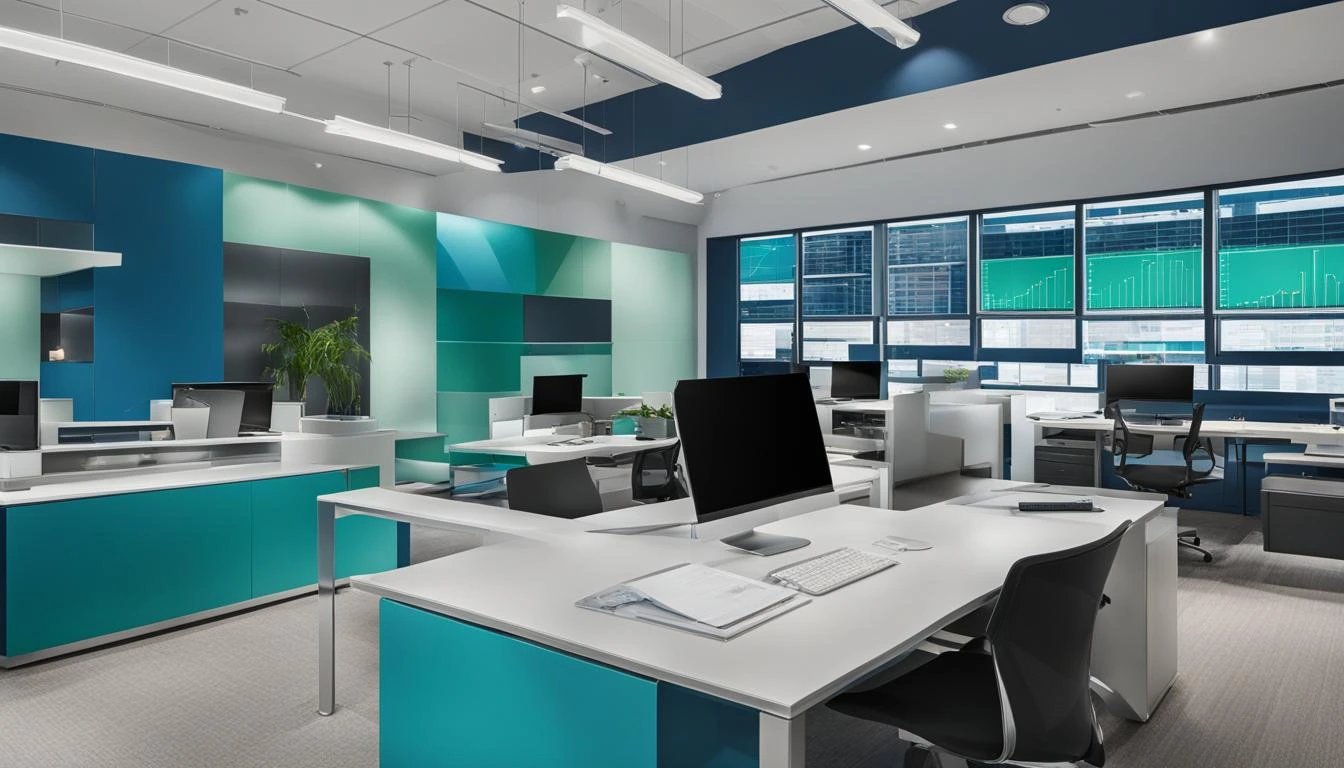Managing a Commercial Property

Embarking on managing a commercial property can appear daunting, but it transitions into an opportunity for remarkable achievements with the right approach. In Canada, commercial property managers are at the forefront of nurturing vibrant business environments. Each property presents its unique demands, from high-rise office buildings in downtown Toronto to sprawling industrial complexes in Alberta.
Think of commercial property management as a multitiered chess game—you’re maintaining the day-to-day operations and strategizing for the long term. Your role goes beyond being a custodian of assets; it involves being a catalyst for business success. Whether you’re managing retail spaces or business parks, your expertise ensures that the enterprises housed within your properties thrive.
Understanding the Basics of Managing a Commercial Property
Diving into commercial real estate management, you’ll discover the essence of combining strategy and precision. With your sights set on this dynamic field, delve into the foundational elements that make or break successful management. You are the new-age custodian, ensuring the vibrancy and profitability of Canada’s commercial spaces.
Key Elements of Commercial Property Management
In commercial property management’s heartbeat, you will find critical tasks such as structuring leases, nurturing tenant relations, and meticulous property inspections. Each facet contributes to the robustness of your operation, serving as a pillar to support thriving business environments within your managed spaces.
- Balanced lease agreements for both tenants and owners.
- Consistent tenant engagement for community collaboration.
- Rigorous inspections to maintain property integrity.

Roles and Responsibilities of a Commercial Property Manager
As a commercial property manager, your role is crucial for property success, including staying updated on the latest trends in Toronto Commercial Real Estate News. Your expertise effectively addresses the unique aspects of non-residential spaces, ensuring optimal use and adherence to specific regulations for different types of properties like office complexes and retail plazas.
- Understand different property types and uses.
- Stay updated with local and federal regulations.
- Proactively prevent and resolve property issues.
- Maintain records for decision-making and space optimization.
Step into your role confidently, knowing that your multidimensional responsibilities are the catalyst for preserving and elevating the value of the properties you manage. Encourage tenant loyalty, and champion the collective success of the commercial spaces under your care. Your proactive approach and diligent oversight are integral to sustaining Canada’s prosperous retail real estate landscape.
Is it Better to Self-Manage or Hire a Property Manager
As you step into commercial real estate, you’ll face a crucial decision—should you self-manage your property, or is hiring a property management professional wiser? Each approach has its merits and challenges, and understanding these can help you navigate the best path for your investment.
Self-Managing Your Commercial Property
Choosing to self-manage a commercial property gives you direct control over every investment aspect. From hand-picking tenants to overseeing maintenance, it allows for a hands-on approach that can be rewarding. Self-management requires commitment and understanding of the best practices in commercial property management, including a good grasp of regulatory requirements and the local real estate market.
- Gains an in-depth understanding of property needs.
- Potential savings on management costs.
- Direct tenant interaction strengthens relationships.
- Personalized care and quality standards are applied.
Hiring a Property Manager Benefits
Delegating the management of your commercial property to an experienced property manager can introduce a level of expertise and efficiency that might be challenging to achieve on your own. It’s ideal for property owners who aim to generate passive income or those with multiple investments requiring their attention.
- Ensures smooth daily operations.
- Addresses tenant issues effectively.
- Access to a vast network of vendors.
- Maintains regulatory compliance.
Hiring a Commercial Property Management Company
For those with extensive portfolios or large-scale commercial properties, enlisting the services of a commercial property management company could be the key to success. Such companies bring structured processes and management best practices to the table, elevating the operational standard of your property.
- Customized solutions tailored to the unique needs of your commercial space.
- Saves time, allowing you to focus on strategic growth and asset acquisition.
- Professional marketing services to maintain high occupancy rates.
- Efficient financial management and reporting for ease of planning and analysis.

Whether you decide to self-manage or hire a professional, remember that the goal is to ensure that your property is well-maintained, profitable, and a valuable asset in your investment portfolio. Align your decision with your long-term objectives, availability, and the degree of involvement you desire in the daily nuances of commercial property management.
Key Steps in Managing Commercial Properties
As you manage commercial properties, you must recognize the core functions that form the bedrock of your responsibilities. Optimizing these key areas will ensure a harmonious balance between tenant satisfaction and the property’s profitability.
Assessing the Physical Condition of the Property
It’s imperative that you consistently engage in assessing property conditions to determine the health of your commercial investment. Regular inspections pinpoint areas needing attention and preempt potential issues that could escalate if unaddressed. Consider the following steps:
- Conduct thorough walk-throughs to examine structural integrity and aesthetics.
- Identify wear and tear that requires maintenance or renovation.
- Document findings to create an actionable maintenance schedule.

Ensuring Legal Compliance
Securing the legal standing of your commercial space is a non-negotiable aspect of property management. Compliance with applicable laws safeguards not only your property but also its occupants:
- Review and stay updated on municipal, provincial, and federal real estate regulations.
- Ensure safety and health codes are fully implemented and adhered to.
- Regularly consult with legal professionals to preempt compliance issues.
Securing and Managing Tenants
Finding the right tenants is as crucial as maintaining the physical premises. Securing tenants whose business models align with the property’s vision fosters a stable and profitable environment:
- Implement strategic marketing to attract quality prospects.
- Maintain clear and open communication channels for existing tenants.
- Develop retention programs to encourage long-term occupancy.
- Offer top-tier property management services to enhance tenant experience.
By integrating these essential steps into your regular operations, you place yourself at an advantage in the marketplace. Embrace the complexities of managing commercial properties, recognizing that your proactive approach to maintaining the property’s condition, adhering to legal compliance, and securing tenants sets you apart as a Canadian commercial property industry leader.
Financial Management for Commercial Properties
Mastering the art of financial management in commercial real estate is a cornerstone of successful property stewardship. Your focus on this aspect ensures that the bills are paid, the lights are kept on, and the property thrives in a competitive market. Essential to this is the adept handling of rent – a process which forms the lifeblood of commercial property’s profitability.
Setting Rent
The task of setting rent for your commercial properties demands a strategic approach. You must align your rental rates with the prevailing market conditions and the value provided by your property’s location, amenities, and services. It’s a balancing act that requires an awareness of current real estate trends and understanding your tenants’ business needs. Here’s what you should consider:
- Conducting market analysis to establish competitive rent prices.
- Assessing the property grade to set rent accordingly.
- Accounting for the value added by on-site services and amenities.
Collecting Rent
Once rent levels are set, the focus shifts to the collection process. In commercial real estate, collecting rent is a streamlined endeavour when you embrace the right tools. Modern property management software can facilitate this, ensuring that payments are received on time and providing a seamless experience for your tenants. Consider the upsides:
- Automating billing and payment processes for efficiency.
- Offering diverse payment options to meet tenant preferences.
- Keeping detailed records for financial transparency and reporting.
Implementing a robust system for financial management, including the strategic setting and efficient collecting of rent, cements your reputation as a meticulous and reliable property manager. And in the ever-evolving realm of commercial real estate, your vigilance in financial matters guarantees sustained success.
Budgeting and Financial Reporting for Commercial Properties
As a dedicated property manager overseeing commercial properties, you understand that effective budgeting and financial reporting are routine tasks and essential pillars supporting your properties’ economic health and strategic growth. By mastering these financial disciplines, you can translate the everyday operations of your commercial properties into clear, measurable performance metrics, setting the stage for a successful fiscal year.

Grounding your management prowess in accurate budgeting ensures that every dollar is accounted for and every decision is made with economic viability in mind. Let’s dive into these critical aspects that undoubtedly fortify your role as a strategic property manager.
Handling Taxes for Commercial Properties
Handling taxes accurately is crucial for property managers to maintain the financial health of their commercial assets, involving precise calculation of tax liabilities and identifying deductible expenses to optimize fiscal outcomes.
- As detailed in financing an apartment building, collaborating with owners on annual budgets is vital.
- Ensure budgeting meets or exceeds projections.
- Produce detailed financial reports.
- Maintain precise financial records for decision-making.
- Stay current with tax laws for efficiency and compliance.
By focusing on these key tasks, you champion your commercial properties’ economic viability and long-term sustainability, paving the way for assured success in the vibrant Canadian market. To learn more, consider the legal and financial considerations when selling your restaurant.
Marketing Your Commercial Property
As you step into commercial property management, you quickly realize that the foundations of sustained success rest not just on the bricks and mortar of your assets but also in their marketplace visibility. It’s essential to raise the curtain on your commercial spaces with a strategic marketing approach, capturing the attention of prospective tenants and reinforcing the unique essence of your property offerings.

The Importance of Marketing in Property Management
Effective marketing elevates a property’s competitive standing, boosts its value, and ensures high occupancy rates, which is key for attracting businesses, This is elaborated in this guide on finding local commercial properties.
- Boosting property visibility to the target audience
- Highlighting distinctive amenities that set your property apart
- Attracting and retaining quality tenants that contribute to a vibrant business community
Developing a Marketing Strategy for Your Commercial Property
A comprehensive marketing strategy for your commercial property is the cornerstone of attracting and engaging the right tenants. You’ll want to mesh the latest digital marketing techniques with time-honoured traditional methods to target businesses effectively. Let’s navigate through the critical steps in forging a marketing plan that is a testament to your management expertise.
- Highlight key features that make your property ideal for businesses.
- Build a strong digital presence using online listings and social media.
- Use targeted advertising to attract relevant business sectors.
- Maintain consistent branding across all marketing materials.
- Regularly measure and adjust marketing strategies for market changes.
Chart a course that markets your property and builds its reputation as a premier business destination. Your commitment to developing and implementing a stellar marketing strategy will consistently make you a Canadian commercial real estate sector leader.
Maximizing the Value of Your Commercial Property
As a commercial property manager, your primary aim is to enhance the value of your property. This comprehensive endeavour requires attention to the physical condition of the building, nurturing relationships with tenants, and periodic reviews and updates. By focusing on these areas, you not only maintain but also considerably increase the worth of your real estate asset.

Maintaining the Property’s Physical Condition
To preserve and increase your property’s value, you must diligently maintain its physical condition. This involves:
- Regular inspections for necessary repairs.
- Routine upgrades to HVAC, plumbing, and electrical systems.
- Maintaining curb appeal with professional landscaping and exterior care.
Keeping the commercial space well-maintained ensures it remains attractive and functional for current and prospective tenants.
Fostering Good Relationships with Tenants
Good tenant relations are at the heart of property value maximization. Strategies to enhance tenant satisfaction include:
- Establishing open communication channels for tenants to voice their needs and concerns.
- Responding promptly to maintenance requests shows tenants that you value their business.
- Developing tenant retention programs that reward long-term leases and encourage renewals.
Positive tenant relationships lead to higher occupancy rates, lease renewals, and favourable property reviews, underpinning the property’s esteemed reputation.
Regular Property Reviews and Updates
To stay competitive in the market and justify the rental rates you desire, it’s crucial to commit to continuous property evaluations and updates, which involve:
- Assessing market trends to keep rental prices aligned with the current landscape.
- Updating amenities to meet modern tenants’ evolving expectations and needs.
- Analyzing tenant feedback and property reviews to identify areas for improvement.
Adopting a proactive approach to regulation compliance, aesthetic appeal, and modernization ensures the longevity and profitability of your commercial property investment.
The Role of Technology in Commercial Property Management
As a forward-thinking commercial property manager in Canada, embracing the digital revolution within your daily operations can provide unparalleled advantages. The technology in property management has evolved significantly, offering a suite of functionalities that simplify complex processes and elevate your managerial acumen.
Benefits of Technology for Commercial Property Management
Integrating the benefits of technology into your commercial property management routine offers a myriad of efficiencies:
- Clear, time-saving communications with tenants and vendors.
- Simplified digital record-keeping.
- Automated financial transactions improve cash flow and accuracy.
- Quick service enhances tenant satisfaction and lease renewal likelihood.
- Software-based data analysis informs property and tenant strategy.
This degree of automation and connectivity streamlines day-to-day tasks and liberates property managers to focus on the bigger picture of asset performance and tenant engagement.
Popular Property Management Software
Selecting the right property management software is critical for harnessing these benefits fully. The market offers a range of platforms, each tailored to the unique needs of managing commercial properties. Here are a few key features you should look for in a software solution:
- Scalable for portfolio growth.
- User-friendly interfaces.
- Comprehensive reporting tools.
- Integrated tenant communication channels.
- Robust security for sensitive information.
Property management software enhances the manager’s role, similar to the insights into how to buy a business in Canada. This digital shift streamlines operations and improves stakeholder experiences.
Dealing with Common Issues in Commercial Property Management
Effective management of commercial properties involves overcoming challenges for success and tenant satisfaction. Key areas include conflict resolution, regular maintenance and repairs, and handling vacancies, all crucial for maintaining rental property health.
Conflict Resolution with Tenants
Fostering a constructive dialogue is key when resolving disputes or misunderstandings with tenants. Your approach should be infused with empathy and an earnest commitment to reach an amicable solution. Here’s how you can excel in tenant conflict resolution:
- Acknowledge and validate tenant concerns.
- Keep tenants informed with transparent communication.
- Ensure fairness and consistency in conflict resolution.
- Aim for mutually beneficial outcomes.
Addressing Maintenance and Repair Issues
Proactive maintenance and timely repairs are the cornerstones of preserving your investment and ensuring tenant safety. Your role demands that you anticipate potential issues and act swiftly to prevent minor problems from escalating:
- Regular inspections and maintenance assessments.
- Prioritized plan for issue resolution.
- Engage skilled contractors for repairs.
- Responsive tenant reporting system for urgent needs.
Handling Vacancies and Turnover
Effective management of vacancies and tenant turnover is crucial for sustained profitability and the dynamism of your commercial estate. Employ these strategies to minimize vacancy periods:
- Stay informed on lease expiration dates and promptly begin the re-leasing process.
- Actively market available spaces, reaching out to a comprehensive network of potential tenants.
- Use market rent analysis to set competitive and attractive rental rates.
- Engage in tenant retention practices to reduce turnover rates.
Equipping yourself with the tools and tactics for handling these fundamental aspects of commercial property management empowers you to navigate the journey confidently. Always keep the lines of communication open, and remember, the more proactive you are in your efforts, the smoother your operations will run.
Conclusion: Key Takeaways for Successful Commercial Property Management
Success in commercial property management hinges on embracing technology for efficient operations, understanding property finance and market trends, and fostering strong tenant relationships. Staying current with legal regulations and using strategic financial planning are key. Additionally, continual education and readiness to adapt to various property types are crucial for leadership in this competitive field. These practices ensure effective management and a thriving commercial environment.
FAQ
What are the fundamental roles and responsibilities of a commercial property manager?
The primary roles and responsibilities include overseeing lease management, maintaining tenant relations, conducting property inspections, managing property maintenance and repairs, and ensuring accurate financial reporting. They also encompass the adaptation of the physical space to tenant needs and compliance with legal regulations, all integral to commercial real estate management.
Should I self-manage my commercial property or hire a property management service?
The decision to self-manage or hire a property management service depends on various factors, including your expertise, time commitment, and property scale. While self-managing could provide more direct control, hiring a property manager or a commercial property management company often brings professional expertise and efficiency and allows you to focus on strategic growth without being entangled in the day-to-day operational complexities.
What steps are involved in managing a commercial property effectively?
Effective management involves thoroughly assessing the property’s physical condition for improvements, ensuring it meets all legal compliance standards, securing and managing tenant relations, setting and collecting rent based on market rates, and handling financial tasks such as budgeting and reporting. Additionally, proactive marketing, maintenance of the physical condition of the property, and leveraging technology can maximize the property’s value and streamline operations.
How important is financial management in commercial property management?
Financial management is crucial in commercial property management as it ensures economic viability. It involves strategic rent setting, diligent collection processes, comprehensive financial reporting, and efficient budgeting and tax handling. These practices help maintain a steady income flow and allow informed decision-making to optimize the property’s economic performance.
How can marketing strategies improve my commercial property’s occupancy rates?
A robust marketing strategy elevates your property’s visibility and appeal to potential tenants. By highlighting the unique selling points and aligning them with the needs of your target demographic, you can attract suitable tenants, which in turn, can improve occupancy rates and solidify the property’s market position.
How does maintaining good tenant relations contribute to the property’s value?
Good tenant relations foster a positive living and working environment, increasing tenant satisfaction and retention. This leads to lease renewals, potential referrals, and a strong service reputation, all of which contribute to sustained occupancy and the overall value of your commercial property.
What role does technology play in managing a commercial property today?
Technology enhances commercial property management by offering streamlined communication avenues, efficient record-keeping, and easy financial transaction capabilities. Property management software can simplify tasks, provide crucial data analytics, and enable more engaged interactions with tenants, thereby increasing the efficiency of operations and tenant satisfaction.
How do I handle common issues, such as maintenance concerns or tenant conflicts in commercial property management?
Addressing common issues involves a proactive approach with effective conflict resolution strategies to deal with tenant concerns promptly and constructively. Regular maintenance, prompt repairs, and being prepared for vacancies are essential for preserving the property’s condition and ensuring continuous revenue, minimizing disruptions and costly downtime.
Resources
- https://www.homee.com/blog/tips-for-successful-commercial-property-management
- https://fnrpusa.com/blog/what-does-a-commercial-property-manager-do/
- https://www.bdc.ca/en/articles-tools/money-finance/buy-lease-commercial-real-estate/commercial-real-estate-acquisition-5-tips-for-success/




